FIGHT CARD THE KNOCKOUT COMING IN DECEMBER
Available this week… Fight Card: The Knockout… By Robert J. Randisi writing as Jack Tunney…
Visit Fight Card Books for more information.
Tell ’em All Pulp sent ya.
Available this week… Fight Card: The Knockout… By Robert J. Randisi writing as Jack Tunney…
Visit Fight Card Books for more information.
Tell ’em All Pulp sent ya.
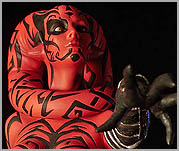 Once again I didn’t make it to the NYCC but I’ve been to umpty-bum comic book conventions over the years, both as a fan and a professional, and I’ve learned one or two things along the way. Being a pro (especially if you’re a guest at the con) and being a fan are two very different experiences. I always regard being a guest at a con as a working weekend and it can, in fact, be more tiring for me than going as a fan.
Once again I didn’t make it to the NYCC but I’ve been to umpty-bum comic book conventions over the years, both as a fan and a professional, and I’ve learned one or two things along the way. Being a pro (especially if you’re a guest at the con) and being a fan are two very different experiences. I always regard being a guest at a con as a working weekend and it can, in fact, be more tiring for me than going as a fan.
My first job is giving any fan that comes up to my table a good experience. These are people who buy my books and that fact keeps me employed. I may be tired, I may be stressed, there may be any number of things bothering me but none of that matters. The Con promoter has paid my way with the expectations that my name may help draw more paying customers and that the paying customers will enjoy themselves well enough at the Con to want to come again next year. I’m part of that equation. It’s part of my job as a professional.
I also want to create more fans. I greet people who pass by, try to engage them in conversation, try to interest them in what I do. If I have something to sell, I have a quick spiel to give passers-by an idea of what’s there. Folks at neighboring tables soon learn to tune me out because it can get repetitive. My Mary has noted that I have developed a “Con persona” – an aspect of myself that I trot out at Cons. I call upon my theater and acting background to “play” a version of myself. It’s an authentic version of me but it’s meant to give those I meet a good experience of me, no matter how I may be feeling. That’s important. They deserve it. It also creates positive word of mouth.
That’s not to say I’m above goofing around. At one Star Wars Convention, there were lots of people in costume, some playing characters I created. That’s always interesting – meeting real life versions of characters that had existed only in my head. I have to admit I pay closer attention to those cosplaying Darth Talon. For those who don’t know the character, suffice it to say that it’s sexy female in a brief costume and lots of body paint. One such young lady was posing in front of the Dark Horse booth and she sure could wear that body paint. I sidled up to her during a pause in the snapshots, smiled, and told her, “I’m your Daddy.”
She gave me a look and said, “Excuse me?” I then hastily explained that I was one of the two creators of the character she was cosplaying. Then she smiled and said, “Oh, you’re so cute!” Which, translated, means, “Look at you! Old enough to be my grandfather and you’re flirting with me! That’s so cute!”
Yeah. Cute. Swell.
On the other hand, I can’t complain too much. I met the two big loves of my life – Kimbery Yale and Mary Mitchell – at conventions. Kim was at a big combined Doctor Who/Comic Convention in Chicago during one sweltering summer. I was trying to get the rights to do a Doctor Who live action play and was talking with the show’s producer, John Nathan Turner, and Terry Nation, one of the legendary writers for the show and creator of the Daleks. This young woman accompanied Mr. Nation. She had a slight accent and I assumed she was his secretary or some such. Turns out she was working security for Mr. Nation, she was local, and her name was Kim Yale.
The other woman was, of course, My Mary – Mary Mitchell. I’ve told the story elsewhere of how we met; she came down to Chicago and the Con to show her portfolio and chose to show it to me. The reason she chose me was that she saw me playing with some young, shy kids at my table, trying to draw them out, and she thought if I was kind to them I might be kind to her. I wasn’t kind; I was enthusiastic. Before she knew it, this madman had her portfolio and was dragging her around to all sorts of people insisting she get work. The funny thing is that she didn’t really know who I was when she approached me; she just knew I was nice to children.
I was and I am. Those kids may be readers some day and they might become my readers. Also, the parents who are towing them around the Convention floor are appreciative if you’re nice to their kids. I even discouraged some children from reading some of my work, like GrimJack, if I feel they’re a little young for the material. I’d prefer to steer them towards good comics for their age group even if I had nothing to do with them. Parents appreciate that and some have even written me thank you letters. All part of that good Con experience.
I’ve also learned to be careful naming favorites or least faves of my work before fans. I once, on a panel, named my least fave book in a given series, going so far as to state that, if I could, I’d buy all the copies of it and destroy them. I thought I was being clever. One fan in the front row had a wounded expression and said, “But that was my favorite issue!” So I don’t do that anymore.
I also try to be open. At one Con I was having a quick lunch from the food at the venue. I was sitting at a table by myself when a fan approached me. She and some other fans were sitting at another table and recognized me and wondered if I would care to join them. While I don’t mind eating by myself, I said “yes” and we all had a very good time.
I do have fun at Conventions and it gives me a chance go see old friends – mostly pros – and make some new ones. For me, however, they are working weekends. Writing is solitary work but there is that social aspect, the selling of yourself and your work, and for me being a professional means making sure the fans are happy.
MONDAY: Mindy Newell
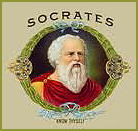 One of the primary rules for writing is “Write what you know.” As I’ve discussed before, the corollary question becomes “what do you know?” I can write characters that, on the surface, are totally unlike me because underlying there are elements that true for both of us. Granted, I need to get the details of those lives correct but the essentials – the feelings, the doubts, everything that makes us human – are the same. I just have to find out where that is in me and what it looks like.
One of the primary rules for writing is “Write what you know.” As I’ve discussed before, the corollary question becomes “what do you know?” I can write characters that, on the surface, are totally unlike me because underlying there are elements that true for both of us. Granted, I need to get the details of those lives correct but the essentials – the feelings, the doubts, everything that makes us human – are the same. I just have to find out where that is in me and what it looks like.
So, for me, the more important rule is “Write what is true.” That will vary from person to person, from character to character. The corollary question then becomes “What is true?” I’m not asking “What is The Truth?” because I don’t think that The Great Objective Truth exists or, if it does, it can be perceived as such by each of us through the lenses of our own existence. What I’m asking is “What is true?” for each person, be they a living and breathing reality or a fictional creation.
Socrates famously said “The unexamined life is not worth living.” I would add: “The unquestioned belief is not worth having.” As kids, we’re all given a set of beliefs, be they about God, country, family, love, values and so on. That’s fine; we all have to start off somewhere. Parents have their beliefs about what is right and wrong, good and bad and it is both their job and their duty to instill those in their children. As the children grow and come to adulthood, it is their job to examine those beliefs and see if they are true for them. Do you believe something because your own experience, your own questioning, has brought you to that place or are you there because someone told you that is true and it’s what you must believe?
That’s my problem with dogma. It tells me that this is the truth and this is what I must believe whether my own experiences agree with it. It may be that my own experiences and my own questioning will bring me to the same place, the same conclusion or belief and that’s fine. I will have then earned that belief; it’s not a hand-me-down. It’s mine.
Dogma, whether religious, political, social or what have you, is easier. Questioning takes time, takes effort and may take you to places that you’re not comfortable to visit. It can shift your foundations. My questions about the existence of God made me feel like I was on a trapeze in the dark. I had just let go of one bar but I couldn’t see if there was another trapeze swinging towards me or if there was a net below. It’s still that way. I’m on a boat in the ocean but I don’t know which port is the destination or how long it will take to get there. The voyage, however, is necessary.
Where I wind up may not be your truth, and that’s fine. I accept that what is true for you is your truth and valid. It just may not be mine. Our truths could be opposite and we both may feel compelled to act on our truths and that may bring us into conflict. That’s also fine. I can oppose you and respect your truth without accepting it for my truth.
As for us, so with the characters we write. The best stories challenge the characters on a deep level, on what they regard as true. The situation challenges or shatters the character’s beliefs. They must find out what is true. If you as the writer have never done that yourself, how can you write it? First you must live it and understand the process and then it becomes useful to you as writer. Aside from talent, aside from skill, all you have to offer as a writer is who you are as a person and your own strengths and weaknesses as that person will become your strengths and weaknesses as a writer.
MONDAY: Mindy Newell
Table Talk is Back!
Pull up a seat and strap yourself in for another edition of Table Talk, the (semi) regular column where New Pulp authors Barry Reese, Bobby Nash, and Mike Bullock answer questions and offer their viewpoints on a wide array of topics relating to New Pulp Fiction.
This time out, the guys tackle team ups and mixing mediums. That’s right, it’s a pulp team-up-a-palooza at www.newpulpfiction.com.
Direct link: http://www.newpulpfiction.com/2012/07/table-talk-pulp-team-ups-and-medium.html
Join the conversation. Leave us a comment on the blog and let us know your thoughts on this topic. We’d love to hear your thoughts and questions.
Have a question you want the Table Talk Trio to answer? Send it to newpulpfiction@gmail.com with “Table Talk Question” in the subject line. Also, let us know if you want attribution for the question, or you’d rather remain anonymous. Please, keep the questions pertinent to the creation of New Pulp and/or writing speculative fiction in general. We’ll get the questions worked into future columns.
Follow the Table Talk Trio on Twitter @BarryReesePulp @BobbyNash @MikeABullock and Facebook.
There seems to be an idea floating about in the ether that my review of John Scalzi’s new novel, Redshirts (posted late yesterday) is negative, and that I don’t like Scalzi’s books.
Both are untrue. Redshirts didn’t strike me as laugh-out-loud hilarious, as it has been billed [1], but it’s a pleasant, quick entertainment — and Scalzi is reliably entertaining, which is why I keep grabbing his novels as soon as I see them. None of those books has been perfect, though, so when I’ve written about them the most interesting (and, I think, useful) tactics have been to poke at the bits that don’t work as well. [2] Writing otherwise — focusing only on the things a book does well — is certainly enjoyable for the author, but I don’t think it’s as effective for everyone else in the world.
My reviewing mode tends to be more negative than positive, I know, but you really can tell when I actively dislike a book. Take, for example, my reviews of two of last year’s Hugo darlings: Mira Grant’s Feed and Connie Willis’s Blackout/All Clear.
That’s what it looks like when I strongly dislike a book. (And, for an example of what it looks like when I keep reading a writer even after I realize I hate his current work, see P.J. O’Rourke’s Don’t Vote: It Just Encourages the Bastards.)
Redshirts, on the other hand, I basically liked — the “codas” at the end, in particular, are really good stuff. If I’ve driven any readers away from it by not stating that it’s the funniest thing since the invention of the seltzer bottle, then I do apologize. You may well find it substantially funnier than I did; at least four SFnal luminaries have already done so.
[1] Which was sad for me; I wanted to read a book as funny as I was told Redshirts was.
[2] Though I have definitely reached the point where noting that Scalzi is not interested in carefully building up his worlds from close readings of Nature and his flying slip-stick is entirely beside the point; he’s not that kind of writer. Come to think of it, I usually make fun of that kind of writer as well.
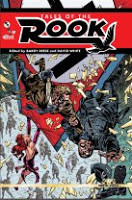 |
| Cover Art: Bob Hall |
Welcome back to Table Talk, a (wanna-be) weekly column where New Pulp authors Barry Reese, Bobby Nash and Mike Bullock babble on about whatever ricochets through their speakeasy. This week, the guys are still inhaling the euphoric fumes of rarified air that is the success of Tales of the Rook, the most recent release from Pro Se Press and Reese Unlimited. For those who have been on the lamb from all things New Pulp, Tales of the Rook has planted its flag squarely on the NewPulp best seller list since it debuted last month. If you haven’t read it yet, grab a copy and enjoy.
We now return you to your regularly scheduled gibber-gabber, already in progress at www.newpulpfiction.com.
Direct link: http://www.newpulpfiction.com/2012/06/table-talk-in-wake-of-rook.html
Follow the Table Talk Trio on Twitter @BarryReesePulp @BobbyNash @MikeABullock and Facebook.
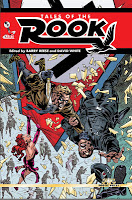 |
| Cover Art: Bob Hall |
After a few weeks off, the guys (Barry Reese, Bobby Nash, and Mike Bullock) return to the table to discuss their involvement in Pro Se/Reese Unlimited’s most recent release Tales of the Rook.
New Pulp’s Table Talk – Tales of The Rook is now available at www.newpulpfiction.com or at the direct link: www.newpulpfiction.com/2012/06/table-talk-tales-of-rook.html
Follow the Table Talk Trio on Twitter @BarryReesePulp @BobbyNash @MikeABullock and Facebook.
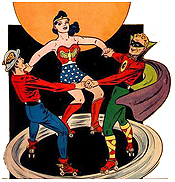 I’ve been writing for much of my life, whether for school and my career, for my blog and online columns, or creatively. In the creative vein, I’ve written short stories, and poetry, and silly humorous things, and am currently working on-and-off on two novels. But in none of those endeavors did, or do, I have a collaborator – a.k.a. a partner in crime! Writing is generally a lonely business. It can be a joyous experience; but even if you have an idea you know you want to express, it can also be a struggle to formulate it, get it down on paper or in a Word document, edit it, and then show it to another human being. That last bit can be especially hard. Even if you’ve been encouraged in your writing, it can be damned difficult to open yourself up for criticism about something so personal – a thing that’s come out of your head and your (mental) sweat and tears, and that you think you might just love, but fear others may scoff at.
I’ve been writing for much of my life, whether for school and my career, for my blog and online columns, or creatively. In the creative vein, I’ve written short stories, and poetry, and silly humorous things, and am currently working on-and-off on two novels. But in none of those endeavors did, or do, I have a collaborator – a.k.a. a partner in crime! Writing is generally a lonely business. It can be a joyous experience; but even if you have an idea you know you want to express, it can also be a struggle to formulate it, get it down on paper or in a Word document, edit it, and then show it to another human being. That last bit can be especially hard. Even if you’ve been encouraged in your writing, it can be damned difficult to open yourself up for criticism about something so personal – a thing that’s come out of your head and your (mental) sweat and tears, and that you think you might just love, but fear others may scoff at.
For example: back in high school, I was a winner in a fairly competitive poetry contest for which the prize was $100 (yay!), a book of poetry, an invitation to read your poems at a local event for the judges, some poets, the other winners and their parents, and then an opportunity to read on stage at the Dodge Poetry Festival. I didn’t make the Dodge Poetry Festival, seeing as how I had to be in another state starting college the week before it occurred, but I did go to the local reading. I’m not generally a nervous public speaker when it comes to presentations or debates but on that day I was thoroughly dreading getting up and reading my own creations in front of everyone – and particularly the professional poets and other winners.
What made it worse, of course, was that with my “W” last name, I was one of the last to read. I sat there and listened as winner after winner read these deep, sorrowful poems about dying and winter and illness and frozen birds (really) and all of this very, very angsty stuff, and I started wondering if perhaps the judges had added my name to the winners’ list by accident. You see, the poem I’d chosen to read was sort of a happy thing, about nature and peace and contentment and family; and as I listened to all of this raw, dark emotion pouring out I thought, “You know, I don’t actually think I’m supposed to be here. Can I just go home now, please?” Even after being chosen as a winner, I was still afraid I didn’t really fit in there, and nobody who listened would think my little poem was any good, and I’d be left standing at the podium in embarrassed silence while everyone just sort of stared at me or, worse, golf-clapped.
Fortunately, it all went fine, and one of the poet-judges came up and shook my hand and said he’d really enjoyed my poems. I’d like to say that I’m completely over that sort of negative thinking now – but I’m not. Although I am better at sharing my work these days, I still sometimes feel as if whatever I’ve just written is awful (this column! It stinks! Get the Febreze!); and I’d hazard a guess that many successful writers still deal with that fear as well. However, I’ve found one method of writing that doesn’t come with the side effect of staring dully at your computer at 2 a.m. while moaning, “This is just terrible.” And it is: collaboration!
One of the best things I’ve discovered about writing comics in particular is how much fun it can be to collaborate, with either an artist or another writer; and how, if you’re lucky, you can find someone who not only complements your own ideas but adds to them to make the whole shebang that much better. Comics is an art form that naturally lends itself to collaboration and often actually requires it, and I’ve learned that I love that.
One great thing about having a collaborator is that you’re both in the creative process together, with the goal of producing a good end product; and so you have someone who cares as much as you do to tell you if they think something’s funny or if it works, or to bounce ideas off of, or to brainstorm with. Because you know they care, you can trust that they’ll be honest in their opinions or suggestions on how to improve the work. Having that other person adds a new dimension of fun to the process, gives you ongoing external feedback that you can trust, and, for me at least, strips away a lot of that internal worry about whether one single other person out there will like my work – because I already know that there’s at least one other person out there who likes it enough to work on it with me!
I first learned the fun of collaborating while working with Marc Vuletich, who’s the artist for all of the webcomics I’ve written to date. I “met” Marc (in the internet sense) two years ago after seeing his work on DeviantArt, and particularly this comic (so wrong but so funny). I’d commented on a few of the webcomics he’d done with Liam Bradley, and then later on I got a Deadpool script idea (which turned into this strip). But, alas, I cannot draw (well not very well, anyway). So I contacted Marc and asked him if he was game to draw it for me. Happily, he was, and it turned out he’d actually read Ask Deadpool before, and liked it, which was a pretty good sign for us working together.
Thus begun our collaboration. I could tell from the first comic that he was going to be fun to work with, because not only did he enjoy my scripts, but he made me laugh at my own comic, adding things I hadn’t mentioned but that fit right in with the spirit of the script, or doing such a good job on a character’s expression that it was just like what I’d pictured, only somehow better. Marc’s work improved on my vision, and strange as it may sound, that made me enjoy my own writing more. It also helped me to see where I could improve my writing, as, for instance, when I would get too wordy and then realize there was no way Marc could fit all of that text into one frame. Okay, so I’m still too wordy sometimes (sorry, Marc!) – but at least now I know it!
Writing for an artist also helps a writer better visualize and develop the balance of text versus action that makes a scene work. Seeing the results of your imagination as visualized by someone else provides new ideas for future ways to frame things or order your storyline. And, of course, working with someone else forces better discipline when it comes to responsibly meeting deadlines, as you need to finish writing in time for your artist to draw the comic and send it back for editing and finalization.
One of the great things about collaboration can be when you find someone you work well with, and work with them long enough to establish a good sense of teamwork and synchronicity. I asked Marc to weigh in on what working together is like, to see if his perspective matched mine, and here’s what he said:
“Emily is really great to work with. First, we both share the same passion for the character Deadpool, and second, her writing style totally complements his comedic personality which makes drawing her comics so enjoyable. The scripts are always very descriptive, which gives me a clear picture of what she’s looking for, while at the same time I still have the artistic freedom to add my own little touches to the comic. The only trouble I used to run in to was finding a way to balance the amount of dialogue in each panel with the action happening around it, but now that we’ve been working together for a while I think we’ve reached this cool little groove where we know exactly what each other wants and we make this awesome team because of it.”
Yep, I think we’ve got some synchronicity going.
Along with my collaborations with Marc (and he’s working on a new script right now that may appear here soon), as I mentioned a couple of weeks ago I’ve recently started working with another writer to develop a new comic series that will be epic in scope. I don’t know if it was luck or fate, but it just so happens that we started talking at just the right time and under just the right circumstances to come up with this fantastically fun idea and discover that we are the perfect foils for each other’s zany brainstorming. I’ll suggest a scenario, and he’ll add something that’s like the missing puzzle piece as to why that scene would be awesome. Or he’ll say something that I’d never have thought of but that fits perfectly into another idea I haven’t even mentioned to him yet. And the best part of all is that he loves my ideas just as much as I do, and vice-versa. There’s no sitting around worrying about whether anyone but me thinks this would be any good – instead, there’s enthusiasm on both sides and a new horizon of infinite possibilities stemming from our creative partnership.
I can tell you right now that this is probably the most creative fun I’ve had in my whole life. And it’s a writing experience I might never have if it weren’t for the collaborative nature of comics. So hooray for comics, and collaboration, and the way this process helps us overcome our writing inhibitions and become better creators.
And remember, we’re in this together! So until next time, Servo Lectio!
WEDNESDAY: Mike Gold Outs Much Ado About Nothing